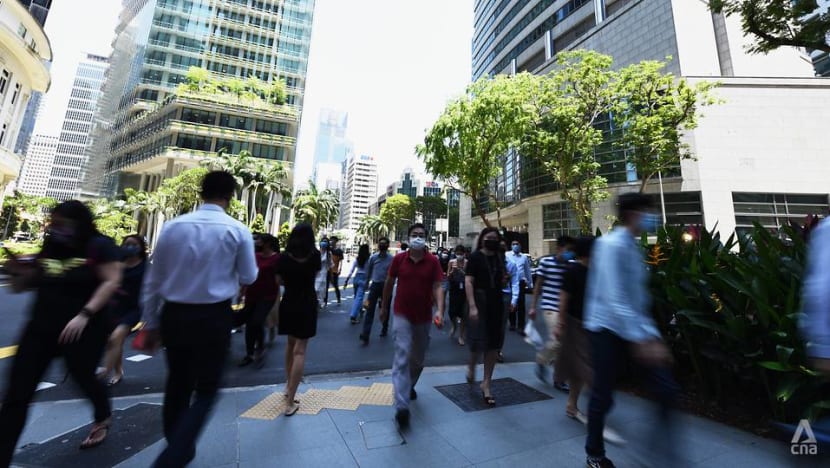Tiered payouts, coaching among suggestions to help retrenched workers navigate new financial support scheme
The new scheme, which provides temporary financial aid for workers who have been laid off, was announced by Prime Minister Lee Hsien Loong at this year’s National Day Rally.

SINGAPORE: The government has to ensure that a new financial support scheme for retrenched workers is available to those who need it the most and that the payouts are reasonable, said observers.
A tiered approach for payouts and preparing those affected for better job opportunities through coaching are some of the suggestions made by the National Trades Union Congress (NTUC) and the Singapore Human Resource Institute (SHRI).
The amount of support “shouldn't be too large such that it would discourage or disincentivise work”, said NTUC assistant secretary-general Patrick Tay, adding that workers have been asking for some form of financial support, especially in times when they are laid off.
“But at the same time, it should be sufficient for them to tide through the difficult period.”
NEW FINANCIAL SUPPORT SCHEME HAS TO BE SUSTAINABLE
The new support scheme, which provides temporary financial aid for workers who have been laid off while they upgrade their skills, was announced by Prime Minister Lee Hsien Loong on Sunday (Aug 20) at this year’s National Day Rally.
“This scheme will ease the immediate pressure that job seekers experience so they can focus on upgrading their skills for a better long-term job,” said Mr Lee, adding that the scheme is currently being fine-tuned.
More details will be shared by the fourth generation (4G) leadership team, when they wrap up the Forward Singapore (Forward SG) initiative to refresh the country's social compact.
“This would augur well to support the vulnerable who are affected by layoffs and the uncertainties ahead, and it would give them a leg up as they look for new employment,” Mr Tay told CNA938 on Tuesday.
Noting that it might take longer for older workers to bound back and re-enter the workforce, the financial support is important to help them tide through the difficult period, said Mr Tay, calling on workers to stay ready, relevant and resilient.

The new scheme needs to be sustainable for Singapore, he said, adding that NTUC and the labour movement have been lobbying for some form of unemployment support or insurance since a decade ago.
“In many parts of the world, unemployment support comes in the form of unemployment insurance, and that's usually not just government funding but funding from employees and employers,” he said.
“But in this case, the government will be behind it. So whatever scheme is rolled out, it has to be financially affordable and sustainable.”
NTUC said this scheme is meant to provide additional support to tide workers through, on top of other aids such as private insurance and retrenchment benefit packages.
Mr Alvin Goh, executive director at SHRI, said: “We feel that the support should be tiered, in terms of financial aid system calibrated to the needs of the individual, and perhaps linked to previous salary income levels and also taking into account family circumstances.”
HELPING RETRENCHED WORKERS RETURN TO THE WORKFORCE
The long-term aim of the scheme is to motivate affected individuals to return to the workforce, instead of making them dependent on the payouts, said observers.
This can be done through safeguards such as having career coaching or training for affected workers.
Mr Tay said: “Before an affected worker can tap this unemployment support, he or she may be required to go through, for example, career counselling, attend career fairs and of course attend upskilling and training opportunities before they land the next job.”
SHRI suggested working with companies to ensure the training programmes are relevant and real job opportunities await those who complete them, especially amid a rapidly changing job market.
Mr Goh said: “I think that's something very important that must take place for this programme to be successful and not allow it to become a social security type of safety net.”




















